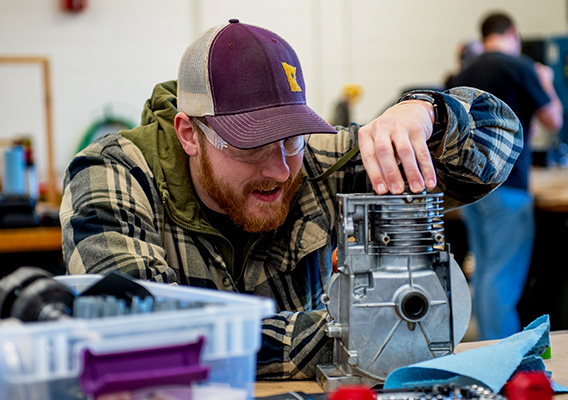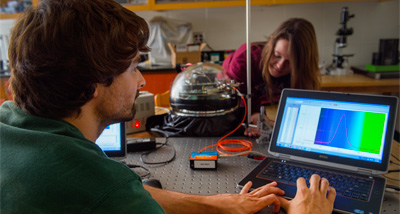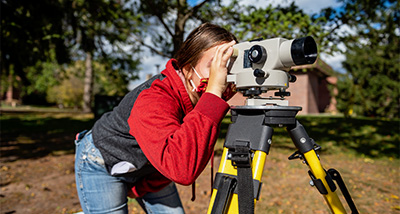

Pre-Engineering
Why Study Pre-Engineering?
Major | Engineering/Science | CAS
A broad field with a host of focus areas ranging from aerospace engineering to mechanical engineering, engineering is an in-demand field with exciting career prospects. As a pre-engineering student at UWRF, you’ll typically complete two years of physics, math, engineering and chemistry courses at UWRF. Following those two years, you’ll apply and transfer to an engineering university of your choice. Most students are able to earn an engineering degree in a total of four years and you’ll benefit from our affordable tuition and supportive environment while making progress toward your degree.
16
Fortune 500 Companies Close to Campus
76%
Of Students Completed At Least One High-Impact Practice Before Graduation
8
Living and Learning Communities
Pre-Engineering
cas@uwrf.edu // 715-425-3777
Your Degree:
Pre-Professional/Undergraduate
Area of Study:
Engineering/Science

Skills and Learning Outcomes
- Understand and apply physics and math principles to practical and applied technical problems.
- Gain experience with instrumentation and develop proficiency in collecting and interpreting data.
- Research and develop new products and processes.
- Determine why objects fail and how to prevent future failures.
- Practice collaboration, oral presentation, scientific writing and laboratory safety skills.
- Develop problem-solving and critical thinking skills.
Types of Courses
- Calculus-Based Physics
- Scientific Programming
- Engineering Thermodynamics
- Intro to Computer Aided Design
- Machine Design
- Statics
- Structural Analysis and Design
- Watershed Engineering


Potential Careers
Engineering graduates have strong foundations in math and science and stand out from the crowd when applying to jobs. Depending on your interest area, you may find yourself in a variety of roles, including:
- Aerospace Engineer
- Agricultural or Biosystems Engineer
- Biomedical or Chemical Engineer
- Civil or Mechanical Engineer
- Computer or Electrical Engineer
- Environmental or Industrial Engineer
- Materials Engineer
Get More Information
Interested in learning more about UWRF or any of our 70+ areas of study? Just share your contact information and we'll be in touch!



